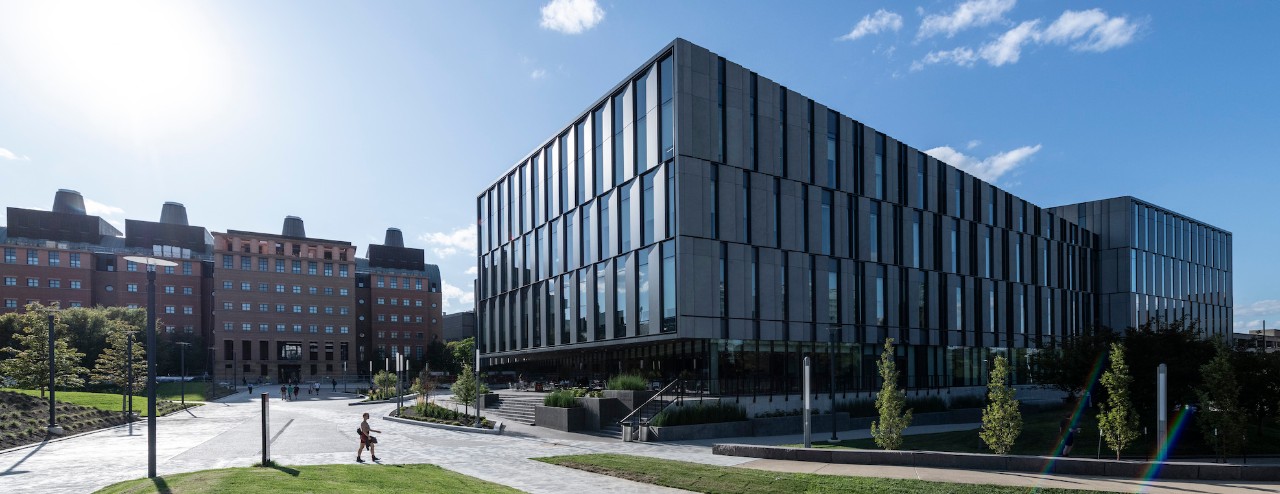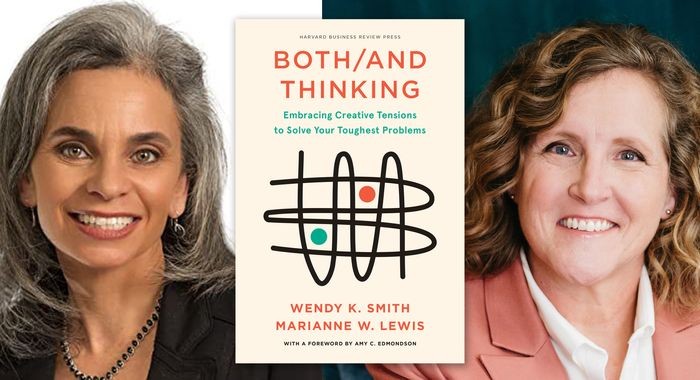
Op-Ed: Adopt a ‘both/and’ approach to create policies that sustain over time
Lindner Dean Marianne Lewis proposes way for bridging societal division
The Supreme Court’s Dobbs decision that overturned a half-century of abortion rights has sparked intense and opposing emotions. Lindner College of Business Dean and Professor of Management Marianne Lewis, PhD, explored this issue in a recent editorial for MarketWatch.
"We find ourselves, yet again, in a polarized political fight with the battlegrounds in Congress, in the boardrooms, on the streets, on social media and, for some of us, at our kitchen tables.”
Lewis' research and forthcoming book, “Both/And Thinking: Embracing Creative Tensions to Solve Your Toughest Problems,” explore how organizations can transform tensions into opportunities for innovation and personal growth.

Smith, left, and Lindner Dean Marianne Lewis coauthored "Both/And Thinking: Embracing Creative Tensions to Solve Your Toughest Problems."
Lewis and coauthor Wendy Smith, PhD, Dana J. Johnson Professor of Management at the University of Delaware Lerner College of Business and Economics, "have spent the last 25 years studying how people face such complex and tenuous issues. Our research shows that when decisionmakers engage opposing positions and adopt what we call both/and thinking, they generate more sustainable and creative solutions.”
Impact Lives Here
The University of Cincinnati is leading public urban universities into a new era of innovation and impact. Our faculty, staff and students are saving lives, changing outcomes and bending the future in our city's direction. Next Lives Here.
Related Stories
UC-linked startups blaze trails as Cincy Inno Fire Awards...
May 5, 2025
Seven of the 22 finalists for the Cincy Inno Fire Awards have connections to the University of Cincinnati. We’ll run through each of these trailblazing startups.
Two College Credit Plus high school students receive bachelor’s...
May 4, 2025
Two high school students received bachelor's degrees at the University of Cincinnati's Spring Commencement. Caden Elrod, a senior at Walnut Hills High School in Cincinnati, and Sai Gollamudi, a senior at Centerville High School in Centerville, receive their degrees while also completing their diplomas. They are first high school students in UC's College Credit Plus Program to earn bachelor's degrees.
UC celebrates record spring class of 2025
May 2, 2025
UC recognized a record spring class of 2025 at commencement at Fifth Third Arena.
